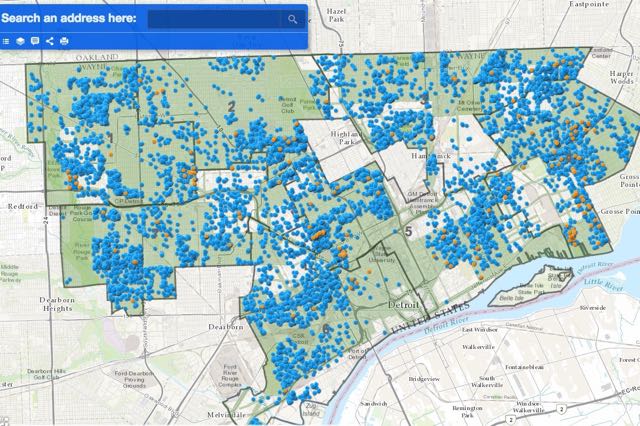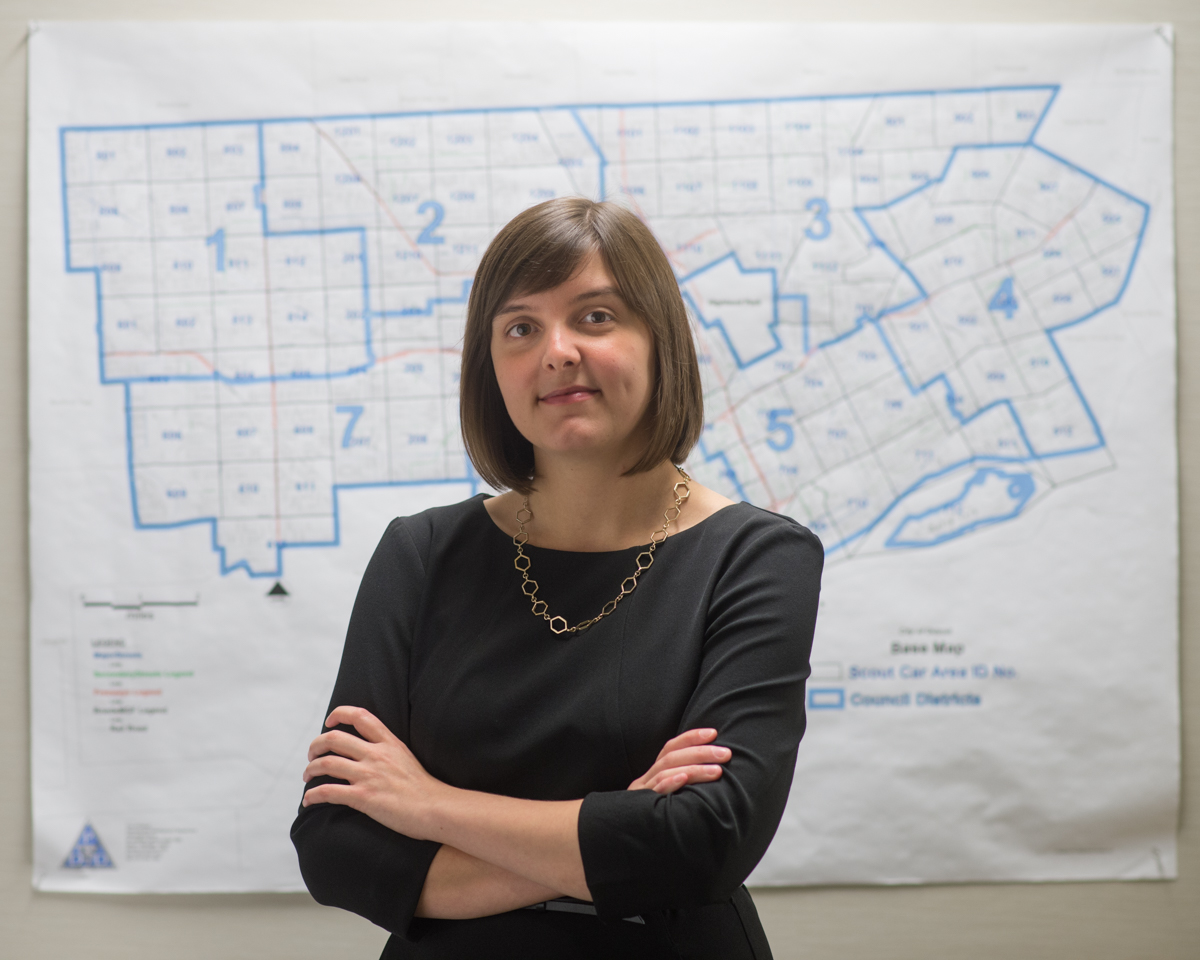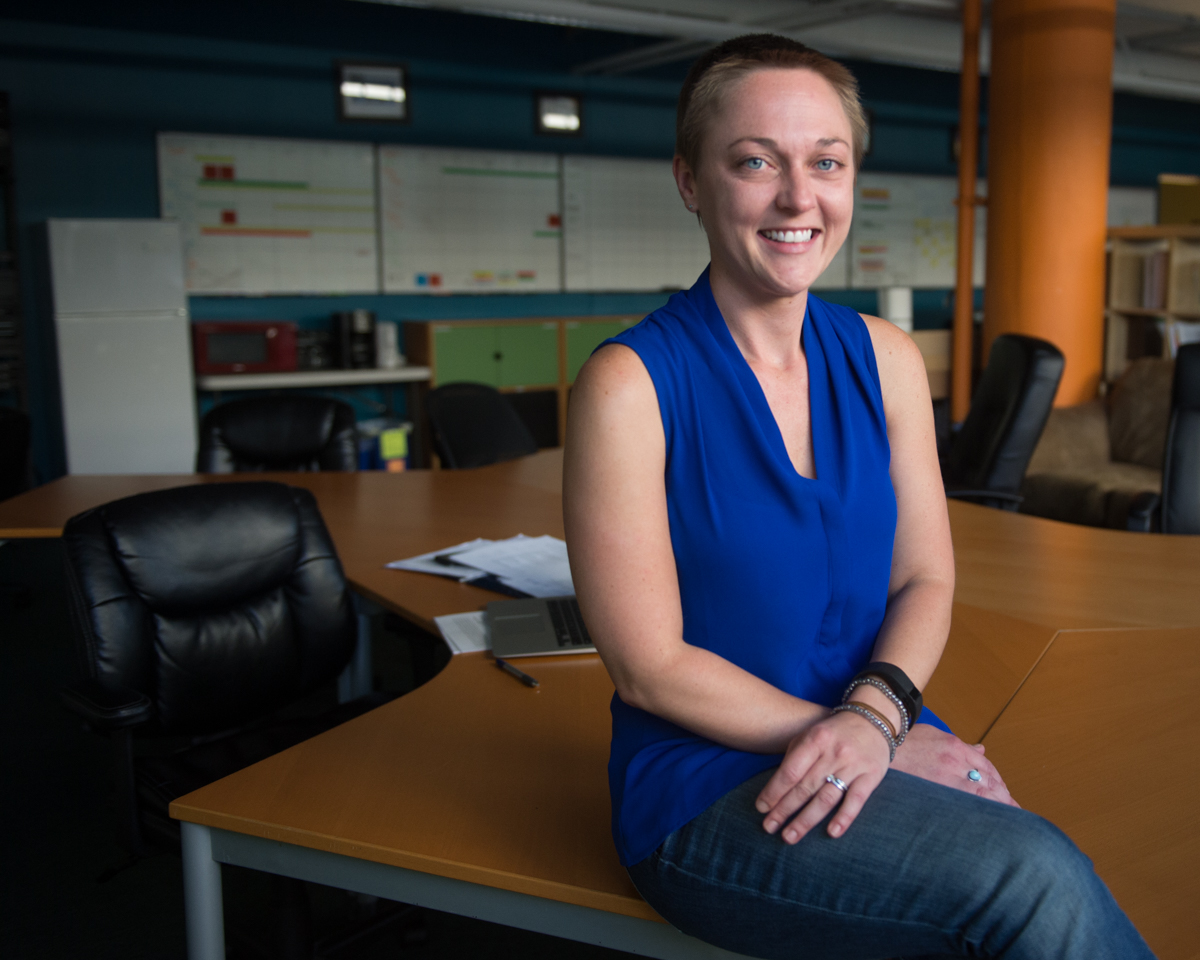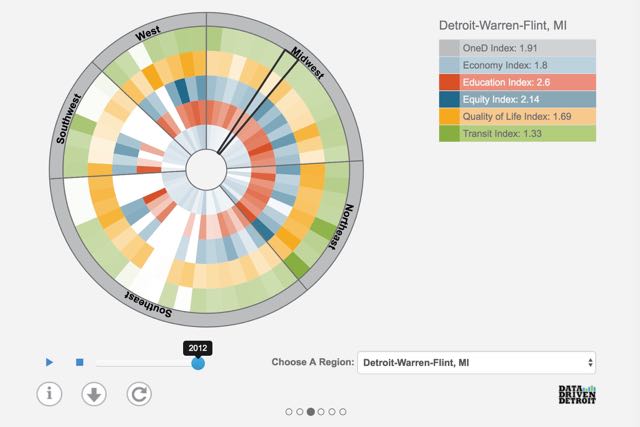It's a bright new day for the collection, cataloging, and distribution of public data in Detroit.
And you can put the emphasis on "new." Erica Raleigh is the executive director of Data Driven Detroit (D3), a company dedicated to providing and analyzing local public data. Raleigh, D3's second hire after its founding in 2008, recalls that they spent the bulk of their time in those early days just trying to get their hands on public data.
"You'd go and sit in one of the departmental offices with a little hard drive in back," she says. "You'd sit there all day. 'Please, can we have your data? We're going to do great things with it. We want to make things better.'"
 Joel Howrani Heeres, director of open data and analysis for the City of DetroitFortunately, access to data is becoming less of an issue. Last year, the city of Detroit launched its Open Data Portal
Joel Howrani Heeres, director of open data and analysis for the City of DetroitFortunately, access to data is becoming less of an issue. Last year, the city of Detroit launched its Open Data Portal, which collects a variety of public city data ranging from traffic signal locations to crime reports. Joel Howrani Heeres, director of open data and analysis at the city's department of innovation and technology, says the portal's goal is to eliminate the need for citizens to do extra work to get the data they need.
"As a government entity, we should be providing clean [data] for the public, and then the Lovelands or the Data Driven Detroits or the university professors and students of the world can do additional analysis on top of that, which we hope they share back with us," Heeres says. "But they don't need to know someone in that department to get the information."
New mentalities at the city
Providing comprehensive access to public data in Detroit is a major undertaking, and one that Heeres admits is still coming together. Prior to Heeres coming onboard last August, the data center was populated with what Heeres describes as "low-hanging fruit": previously accessible information like DDOT bus routes and blight violations.
"A few departments here and there had initiatives around sharing data, but it was really spotty and not consistent," Heeres says. "So we were really, to a large degree, starting from scratch."
In addition to continuing to add new data to the portal, Heeres' work has been focused on refining existing data and presenting it in a useful fashion. That can include tasks like adding parcel IDs to data sets on building and trade permits, or maintaining the Detroit Demolition Tracker, which pulls information from the Detroit Land Bank to create an interactive map of demolitions in the city.
 City of Detroit's Demolition Tracker, which shows all completed and pending demolitions in the city
City of Detroit's Demolition Tracker, which shows all completed and pending demolitions in the city
Heeres also spends time interfacing with citizens and nonprofit organizations to determine what the public most wants to know.
"I have to meet the needs of a lot of different levels of users," Heeres says. "There's the grandmother who lives on the block and wants to know about whether the house across the street from her is going to be demoed or not. Then I have to deal with the Data Driven Detroits of the world. Those different needs often require different interventions."
Open Data isn't the city's only innovative initiative with regards to data.
 Kresge Mayor's Fellow Diana Flora
Over at the Detroit Police Department (DPD), Kresge Mayor's Fellow
Kresge Mayor's Fellow Diana Flora
Over at the Detroit Police Department (DPD), Kresge Mayor's Fellow Diana Flora is one year into a two-year effort to use DPD data to improve the department.
Flora's work has included internal projects like compiling reports on department performance.
But she's also been involved in the DPD's participation in the White House Police Data Initiative, which calls on police departments to release data sets related to police-citizen interactions. The DPD now makes public all recorded crime incidents, citizen complaints, and 911 calls, except for those related to sexual crimes.
Flora says that's not thanks specifically to her efforts, but to a broad mentality of data transparency throughout the department and city government in general.
"I was definitely an addition in support of the things that are already happening, in support of the vision that was already there, which makes my job a lot easier," she says. "It means that there was already an infrastructure to engage with by the time I got here."
New mentalities, new initiatives
That shift in mindset has caused Raleigh and her colleagues at D3 to reevaluate the way they do things.
 Erica Raleigh, executive director of Data Driven Detroit"We realized that just putting data out in the world was not really the thing that people need," Raleigh says. "That's not what all people are looking for."
After years of concentrating energies on gathering and disseminating public data, D3 has refocused its efforts on helping people understand it. D3 assists individuals and organizations in asking the right questions, finding the right data, analyzing and visualizing it, and then drawing conclusions from that analysis. That's been driven both by increasing transparency at the city and growing partnerships with community organizations like the Kresge Foundation and the Skillman Foundation.
The changing Detroit data landscape has also freed D3 up to pursue major new initiatives like its Motor City Mapping
Erica Raleigh, executive director of Data Driven Detroit"We realized that just putting data out in the world was not really the thing that people need," Raleigh says. "That's not what all people are looking for."
After years of concentrating energies on gathering and disseminating public data, D3 has refocused its efforts on helping people understand it. D3 assists individuals and organizations in asking the right questions, finding the right data, analyzing and visualizing it, and then drawing conclusions from that analysis. That's been driven both by increasing transparency at the city and growing partnerships with community organizations like the Kresge Foundation and the Skillman Foundation.
The changing Detroit data landscape has also freed D3 up to pursue major new initiatives like its Motor City Mapping project, a joint venture with Loveland. The project engaged over 120 Detroiters in photographing and surveying every single property in the city, recording each unit's occupancy and condition. That information was compiled into an interactive map that's updated on a quarterly basis.
"That is a core data asset at this point which we are trying now to turn into something like a development tracker," Raleigh says.
 D3's One D Scorecard, which rates and compares performance of U.S. regions in five important data indicators
D3's One D Scorecard, which rates and compares performance of U.S. regions in five important data indicators
Not all public data projects relate directly to city government or availability of city documents.
Jessica McInchak is part of a team of three that manages the Detroit Ledger, an online guide to philanthropic funding in the city. The Ledger pulls data from over 1,400 different organizations to track who's funding what. McInchak says the project was inspired by her and her colleagues' frustrations while working for nonprofits. Information on philanthropic nonprofits was technically public information by law, but it was often difficult to track down.
"So much of the work just stemmed from this really basic information challenge," McInchak says. "This data is public and there for anyone to use, but it's just not anyone's idea of usable and it's in a non-searchable format."
It's an exciting time for McInchak and her colleagues, as the IRS recently made e-filed nonprofit tax returns available online for the first time just this summer.
In other corners of the Detroit open data landscape, exciting possibilities are blossoming as well. Heeres notes that the Open Data Portal, with its accessible API built by government open-data specialists Socrata, will be a "godsend" to individual app developers as it grows. And at D3, Raleigh is working to tie the Motor City Mapping project in with the national Urban Institute's
quarterly housing market reports on Detroit.
At this point, the main mission for Detroit's data junkies is no longer begging for data, but making the best use of the digital wealth at their disposal.
"There's so much data out there," Raleigh says. "I think it's still a filtering process of what's important and what's not."
All photos by Sean Work.
This piece is part of a series highlighting the role science plays in Detroit. It is supported by the Michigan Science Center.